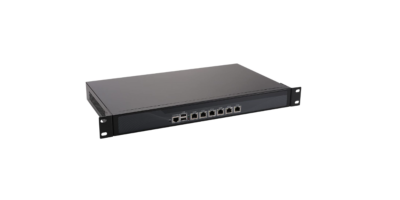Electronic health records (EHRs) are digital versions of the paper charts and files that healthcare providers have used for generations to document patient care. They usually include information such as a patient’s medical history, diagnoses, medications, immunizations, and laboratory test results.
Healthcare providers can share EHRs with other authorized providers and organizations to support continuity of care. For example, if a patient sees a new provider or is hospitalized, the new provider can access the patient’s EHR to get a complete picture of the care that has been provided.
Why is security important for Electronic health records (EHR)?
The transition from paper to electronic health records created new opportunities for improving the quality and efficiency of healthcare. However, it has also introduced new risks and challenges, particularly concerning security and privacy.
EHRs contain a wealth of sensitive information that can be used to commit fraud or identity theft. Providers can also be held for ransom by cybercriminals who encrypt the data and demand payment for the decryption key. If an EHR is breached, it can cause significant disruption to healthcare operations and jeopardize patient safety.
Therefore, healthcare providers must have robust security measures in place for their electronic health records (EHRs).
To protect your EHR data, you should consider implementing the following security measures:
1. Risk Analysis
Conduct a comprehensive risk assessment of your EHR system regularly. This will help you identify potential vulnerabilities and take steps to mitigate them.
2. Access Control
Restrict access to your EHR system to authorized users only. Make sure that all users have unique login credentials and that these credentials are kept confidential.
3. Encryption
Encrypt all data stored in your EHR system, both at rest and in transit. This will make it much more difficult for unauthorized individuals to access your data.
4. Auditing and Monitoring
Monitor activity on your EHR system closely. Keep track of who is accessing which data and when. This will help you identify unauthorized access and take appropriate action.
5. Backups
Create regular backups of your EHR data. Store these backups in a secure location, preferably off-site. This will ensure that you have a copy of your data in case of system failure or data loss.
6. Security policy
Develop and implement a security policy for your EHR system. This policy should cover all aspects of security, from access control to data encryption. Make sure that all users of your system are aware of and comply with this policy.
7. Training
Make sure that all users of your EHR system receive training on how to use it securely. This will help them understand the importance of following security procedures and make it more likely that they will do so.
8. Updates
Keep your EHR system up to date with the latest security patches and updates. This will help close any potential security vulnerabilities.
9. Vendor management
If you use a third-party vendor for your EHR system, make sure that they have adequate security measures in place. Conduct regular audits of their security practices to ensure that they are up to par.
10. Network security
Implement security measures at the network level, such as firewalls and intrusion detection systems. This will help protect your EHR system from external threats.
11. Proper Data Purging
Ensure your organization properly purges all data that is no longer needed from your system. This will help reduce the amount of data that needs to be protected and minimize the risk of unauthorized access.
12. HIPAA Compliance
Comply with all applicable HIPAA regulations. This will help ensure the security of your patient data and protect you from legal liability.
Conclusion
These are just some of the security measures you should consider implementing for your EHR system. By taking these steps, you can help protect your data from cyberattacks and other threats.
If you are looking for the best managed IT services for healthcare, please visit us at https://medicalitg.com/
Medical ITG is the leading provider of Managed IT services and Regulatory Compliance Solutions for the Healthcare Industry. Our mission is to help our clients keep their patient data safe and secure while complying with all applicable laws and regulations. Visit us online or call us at (877) 220-8774 to learn more about our services.
Reference- https://www.lepide.com/blog/5-ways-to-secure-electronic-health-records/










